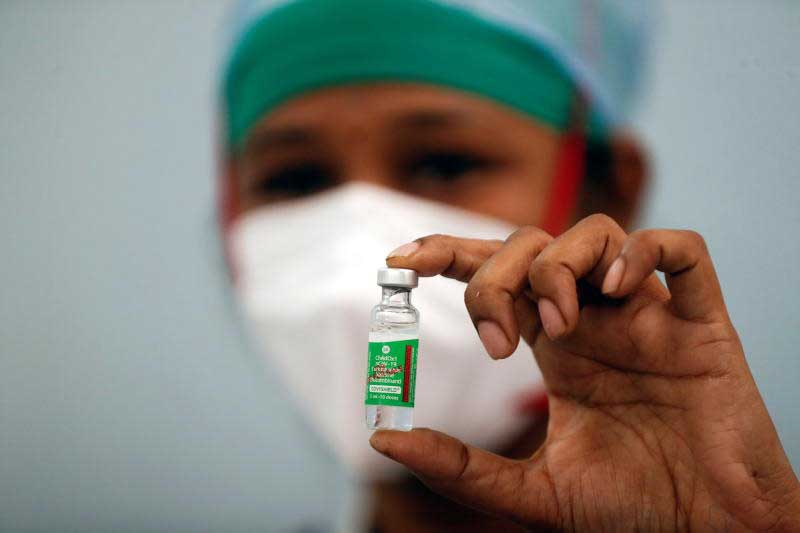
The Food and Drug Administration (FDA) is expected to approve the Oxford-AstraZeneca Covid-19 vaccine this week for emergency use.
Dr Opas Karnkawinpong, director-general of the Ministry of Public Health's Disease Control Department (DCD), said on Monday the FDA was examining documents submitted to it to prove the efficacy and safety of "a Covid-19 vaccine".
Dr Surachoke Tangwiwat, deputy secretary-general of the FDA, later confirmed it was the vaccine produced by Oxford University and AstraZeneca, a British-Swedish multinational pharmaceutical and biopharmaceutical company.
He said the submitted documents contained details of both the quality and the production process of the vaccine and this would help shorten its registration process.
Dr Opas confirmed that the ministry was likely to begin its Covid-19 inoculations using the AstraZeneca vaccine next month.
The ministry routine is to follow up on people injected with Covid-19 vaccines for at least four weeks afterwards, during which time all possible allergic reactions or complications are strictly recorded and investigated, he said.
Dr Opas was responding to concerns raised over a number of elderly people's deaths believed to be associated with the Pfizer-BioNTech vaccine in Norway.
Should anyone die after being injected with a Covid-19 vaccine, the death will be investigated promptly to determine if it is related to the vaccine, said Dr Opas, and only if it is clearly proved to not be associated with the vaccine will its continued use be allowed.
If it remains unclear whether such a death is connected with the vaccine, the use of that particular vaccine will be suspended, he insisted.

Deaths among elderly Norwegians with serious underlying health conditions following the administration of the Pfizer-BioNTech Covid-19 vaccine have sparked global concerns over its safety.
A senator and medical doctor, Jet Siratharanont, on Monday raised a question in parliament over the safety of the government's plan to administer the first 200,000 doses of a Covid-19 vaccine next month.
Deputy Public Health Minister Sathit Pitutecha insisted that only vaccines proven to be safe would be administered to Thai people ... and they would be China's Sinovac vaccine or the Oxford-AstraZeneca one, not Pfizer's.
The first vaccines will be given to at-risk groups in the five provinces designated as maximum and strict Covid-19 control zones.
Priority will also be given to people aged 60 or older and those with chronic diseases certified by medical professionals to be particularly prone to contracting the virus that causes Covid-19, he said.
The injection of a further 800,000 dozes would follow in March in provinces other than these first five provinces before inoculation of the general population will be allowed to begin in June and July, said Mr Sathit.
Deputy Prime Minister and Public Health Minister Anutin Charnvirakul, pointed out that overseas deaths thought to be linked with Covid-19 vaccinations were at this point only media reports and not yet verified by any government organisations.
As for the safety of the vaccines that would be administered to Thai people, the minister said a sub-committee had been tasked with managing the government's Covid-19 vaccination programme to ensure all vaccines were safe before being cleared for use.
Both the FDA and the Department of Medical Sciences are responsible for inspecting any Covid-19 vaccines to ensure their safety before the sub-committee allows them to be used, he said.
Therefore the administration of the vaccine was still being totally controlled by the government, he said.
